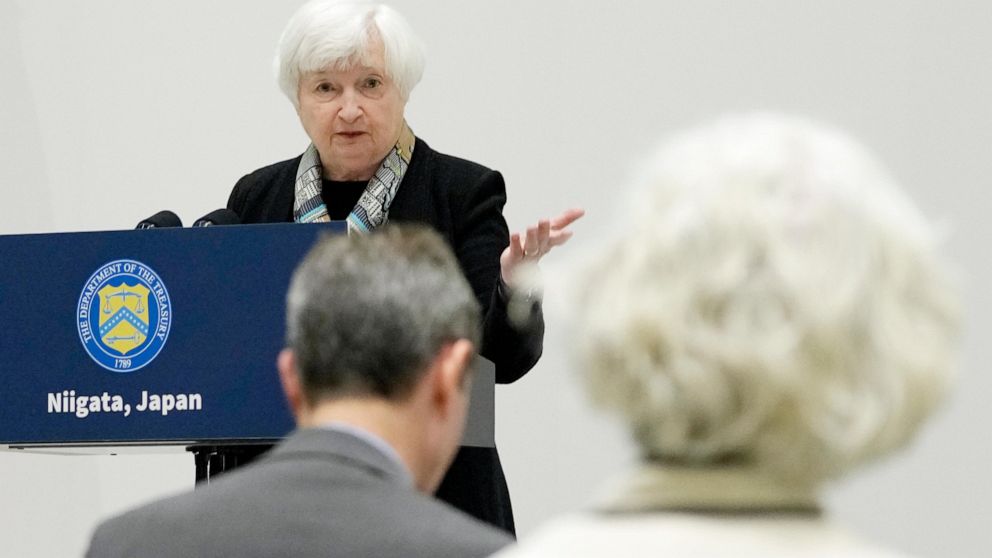Global Courant 2023-05-11 16:17:08
NIIGATA, Japan — After dozens of deadlocks with Congress over government spending over the decades, Treasury Secretary Janet Yellen said Thursday that she believes the United States should adopt a different system for national finances.
Yellen insisted it was her own opinion, not President Joe Biden’s, and said there are several alternatives to avoid situations where the Treasury doesn’t have the money to pay its bills.
In January, the US government hit its legal credit limit of $31.381 trillion, and the Treasury Department began implementing “extraordinary measures” to avoid defaults on its accounts.
It’s a predicament that has happened nearly 80 times since 1960, she said. The Treasury Department has warned that the US could default on June 1 if no deal is reached.
“Personally, I think we need to find another system for deciding fiscal policy,” Yellen said when asked about the matter. Congress could repeal the debt ceiling or do it differently. The president could decide to raise the debt ceiling and inform Congress, which could vote to override that decision, and the president could veto that, and it would take a two-thirds supermajority of Congress to override the veto.
Congress votes on taxes and on government spending, and “those decisions imply a path of deficits,” Yellen said. Bills fall due because of those decisions and that makes the Treasury responsible for paying for goods and services already contracted.
Biden wants the debt ceiling raised. Republican House Speaker Kevin McCarthy is calling for billions of dollars in spending cuts over the next decade in exchange for an increase.
The debt ceiling then creates a situation where “we can’t pay all of the government’s bills, and I don’t think that’s the only way to run the government,” she said. US Treasury bills are the most important asset in global financial markets and a loss of confidence in their value would throw financial markets into turmoil.
“Experiencing this every few years is extremely damaging,” Yellen said.
For now, raising the debt ceiling to avoid default on the national debt remains the only short-term solution, she said.
Ahead of a meeting in Japan of finance ministers and central bank governors from the Group of Seven advanced economies, she said she did not want to discuss what she might do if the debt ceiling is not raised in time to avoid bankruptcy .
“There are choices,” she said, but “the answer is that there is no good alternative that will save us from catastrophe.”
“The only reasonable thing we can do is raise the debt ceiling and avoid the terrible consequences that will come if we have to make those choices,” she said.
A White House analysis found that a “short-lived” bankruptcy could cost the economy 500,000 jobs, while a longer bankruptcy could cost 8.3 million jobs, nearly as many as were lost during the 2008 financial crisis.
“I am hopeful that the differences can be bridged and that the ceiling will go up,” she said.
One idea being discussed is the invocation of the Constitution’s 14th Amendment, which states that the “validity of the national debt of the United States, authorized by law, … shall not be called into question”.
That would justify issuing the debt needed to pay all government bills and ignore the debt ceiling, Yellen said. But she added that it is not a short-term solution and that “legally questionable is whether that is a viable strategy”.








